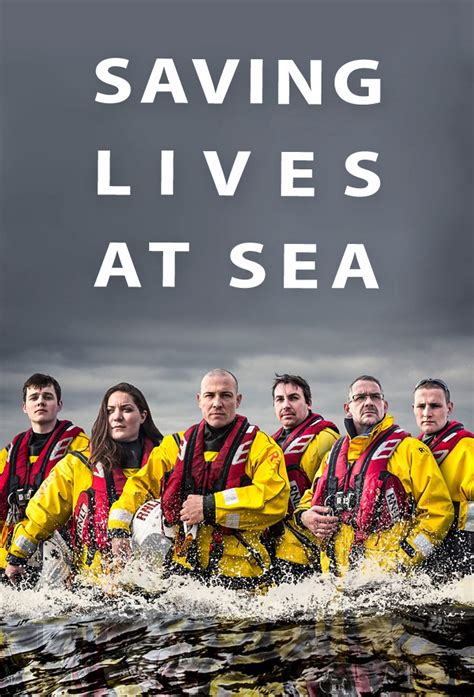Are you ready to embark on a journey into the world of maritime rescue? Join me as we explore the importance of maritime rescue operations and the challenges faced by brave rescuers who put their lives on the line to save others. In this blog post, we will delve into the training and preparedness needed for maritime rescues, and the critical role that technology plays in saving lives at sea. We will also examine the vital aspects of collaboration and coordination in maritime rescues, as well as the humanitarian aspect and the psychological impact on rescuers. From rescue operations in extreme weather conditions to success stories and lessons learned, we will cover it all. And if you’ve ever wondered how you can support maritime rescue organizations, stay tuned for some insights on how you can make a difference. Get ready to be inspired by the incredible efforts of those who dedicate their lives to saving lives at sea.
Table of Contents
The Importance of Maritime Rescue
Maritime rescue plays a crucial role in saving lives at sea and preventing maritime disasters from turning into tragic accidents. The importance of maritime rescue cannot be overstated, as it is the key to ensuring the safety and well-being of individuals who are in distress on the open water. From commercial vessels to recreational boats, anyone can find themselves in a maritime emergency, and the presence of skilled and prepared maritime rescuers can mean the difference between life and death.
One of the primary reasons for the importance of maritime rescue is the vast and unpredictable nature of the open water. Unlike land-based emergencies, maritime incidents often occur in remote and challenging environments, where immediate assistance may be difficult to access. Maritime rescuers are trained to navigate these obstacles and provide timely aid to those in need, making their role indispensable in preserving human life on the sea.
Furthermore, maritime rescue operations are essential for maintaining the integrity and reputation of the maritime industry as a whole. By demonstrating a commitment to safety and emergency response, organizations and individuals involved in maritime rescue contribute to the overall security and resilience of the maritime sector. This not only safeguards the lives of those at sea but also upholds the standards of professionalism and accountability within the industry.
In summary, the importance of maritime rescue cannot be overstated. From its critical role in saving lives to its influence on industry standards, maritime rescue is a vital component of ensuring safety and security on the open water. Through ongoing support and recognition of the significance of maritime rescue, we can work towards a safer and more sustainable maritime environment for all.
The Challenges Faced by Maritime Rescuers
Maritime rescuers face numerous challenges in their line of work, often putting their own lives at risk to save others. One of the main challenges is the unpredictable nature of the sea, with rough waters and adverse weather conditions making rescue operations extremely difficult. Rescuers have to navigate through treacherous waters, often with limited visibility, making it a high-stakes and dangerous endeavor.
Additionally, the vastness of the sea presents another obstacle for maritime rescuers. Searching for and locating a distressed vessel or individual in a vast expanse of water can be like finding a needle in a haystack. This requires meticulous planning, coordination, and a great deal of patience, as rescue operations can stretch on for hours or even days.
Furthermore, the physical and mental toll on rescuers cannot be understated. The demanding nature of maritime rescues can take a significant toll on the rescuers’ health and wellbeing. Long hours spent at sea, exposure to extreme weather conditions, and the stress of potentially life-threatening situations can lead to fatigue, stress, and burnout.
Finally, the lack of resources and funding also presents a major challenge for maritime rescuers. Many organizations and individuals involved in maritime rescues often operate on limited budgets, which can hinder their ability to effectively carry out rescue operations. This creates additional pressure and obstacles for rescuers, as they strive to save lives with limited resources.
Training and Preparedness for Maritime Rescues
Training and preparedness are essential elements in ensuring the success of maritime rescue operations. The training of maritime rescuers involves both theoretical knowledge and practical skills. Rescuers need to be well-versed in navigation, first aid, and crisis management. It is crucial for them to understand the specific challenges they may face at sea and how to handle them effectively.
Additionally, preparedness is key in ensuring that rescuers are equipped to handle any situation that may arise. This includes having the necessary equipment and resources readily available, as well as having a well-thought-out plan in place for different scenarios. Proper preparedness can make a significant difference in the outcome of maritime rescue missions.
Furthermore, ongoing training and drills are essential to keep rescuers sharp and ready to respond at a moment’s notice. Regular practice allows them to maintain their skills and stay up-to-date with the latest techniques and technologies in maritime rescue. This continuous training is crucial in ensuring that rescuers are always prepared to handle any emergency situation effectively.
In conclusion, training and preparedness are vital components of maritime rescue operations. Rescuers must be well-trained and equipped to handle the challenges they may face at sea. Ongoing training and preparedness efforts are essential in ensuring the safety and success of maritime rescue missions.
The Role of Technology in Saving Lives at Sea
Technology plays a crucial role in improving maritime rescues and ultimately saving lives at sea. In today’s modern world, the use of satellite technology has greatly enhanced the effectiveness of search and rescue operations. With the help of satellite imagery, rescuers can pinpoint the exact location of distress signals and vessels in need of assistance, allowing for a faster response time.
Furthermore, communication technology has revolutionized the way maritime rescues are conducted. The use of VHF radios, AIS transponders, and EPIRBs (Emergency Position Indicating Radio Beacons) enables distress calls to be transmitted and received over long distances, ensuring that help can reach those in need no matter how remote their location may be.
In addition to this, the development of unmanned aerial vehicles (UAVs) has provided rescuers with eyes in the sky, allowing them to survey vast areas of open water in a relatively short amount of time. These drones are equipped with high-definition cameras and infrared sensors, making it easier to locate and rescue individuals or vessels in distress.
Lastly, the use of rescue technology such as life rafts, personal locator beacons, and survival suits has proven to be invaluable in saving lives at sea. These innovative tools and equipment have significantly improved the chances of survival for those who find themselves in perilous situations on the open ocean.
Collaboration and Coordination in Maritime Rescues
When it comes to maritime rescues, collaboration and coordination are absolutely crucial in ensuring the safety and success of rescue missions. Without effective collaboration between different maritime rescue organizations, the response to emergencies at sea can be delayed or inefficient, potentially resulting in loss of lives. Therefore, collaboration among maritime rescuers, whether they are from coast guards, navy, or non-profit rescue organizations, plays a vital role in saving lives at sea.
Moreover, coordination among these different entities is essential to ensure that the resources and expertise are properly utilized. From sharing information about the location of distress calls to coordinating the deployment of rescue vessels and aircraft, seamless coordination is necessary to optimize the response to maritime emergencies.
Additionally, effective communication between maritime rescuers is imperative for collaboration and coordination to be successful. This includes not only clear and concise radio communication between rescue teams but also the sharing of critical information and intelligence to determine the best course of action in saving lives at sea.
Ultimately, collaboration and coordination in maritime rescues are the key factors that can determine the outcome of rescue missions, making it essential for all involved parties to work together in a cohesive and efficient manner to ensure the safety of those in distress at sea.
The Humanitarian Aspect of Maritime Rescue Missions
Maritime rescue missions are not just about saving lives at sea, they also have a profound humanitarian aspect that often goes overlooked. When a distress call is received, maritime rescuers are not just responding to a technical problem, they are answering a cry for help from fellow human beings in desperate need. This humanitarian aspect adds an emotional weight to the already challenging and dangerous rescue operations.
Maritime rescuers are driven by the desire to alleviate suffering and prevent loss of life. The knowledge that their actions can make a life-or-death difference for the individuals involved adds an additional layer of responsibility to their work. They are often the last line of defense for those in peril at sea, and this human element is at the core of their rescue missions.
Furthermore, the humanitarian aspect of maritime rescue missions extends beyond the act of saving lives. It also encompasses the care, compassion, and support provided to survivors once they are rescued. This includes medical attention, emotional support, and essential supplies. Rescuers go above and beyond to ensure that those they save are given the best possible chance of recovery and survival.
The humanitarian aspect of maritime rescue missions serves as a reminder that at the heart of every rescue operation are individuals in need of help, compassion, and hope. It is this understanding that drives the unwavering dedication and commitment of maritime rescuers in their mission to save lives and uphold the value of human life.
Rescue Operations in Extreme Weather Conditions
Rescue operations in extreme weather conditions pose a unique set of challenges for maritime rescuers. From torrential rain and high winds to freezing temperatures and rough seas, the men and women who risk their lives to save others at sea must be prepared for any and all weather-related obstacles.
One of the biggest challenges faced by maritime rescuers in extreme weather conditions is navigating through the elements to reach those in distress. High winds and rough seas can make it difficult for rescue vessels to maneuver, while freezing temperatures and heavy rain can impact visibility and put rescuers at risk of hypothermia and other weather-related illnesses.
Training and preparedness are essential for maritime rescuers who operate in extreme weather conditions. This includes learning how to operate in adverse weather, as well as having the appropriate gear and equipment to stay safe and perform rescues effectively.
Despite the challenges, rescue operations in extreme weather conditions have resulted in countless lives being saved at sea. The dedication and bravery of maritime rescuers, coupled with advancements in technology and ongoing training, continue to make a difference in extreme weather rescues around the world.
The Psychological Impact on Rescuers
Maritime rescuers often face intense and traumatic situations in the line of duty, which can have a profound psychological impact on their well-being. The challenges they encounter, such as witnessing distressing scenes, dealing with life-and-death decisions, and enduring long, arduous missions, can take a toll on their mental health.
Furthermore, the unpredictable nature of maritime rescues adds to the stress and anxiety that rescuers experience. They must be prepared to respond to emergencies at a moment’s notice, often facing extreme weather conditions and dangerous environments.
In addition to the immediate effects of the job, rescuers may also struggle with post-traumatic stress disorder (PTSD) and other long-term psychological consequences. It’s crucial to recognize and address the emotional toll that maritime rescuers endure in order to provide them with the support and resources they need.
By understanding the psychological impact on rescuers, we can work towards implementing better mental health resources and support systems within maritime rescue organizations, ensuring the well-being of those who dedicate their lives to saving others at sea.
Success Stories: Lives Saved and Lessons Learned
Success stories in maritime rescue operations are a testament to the hard work and dedication of the individuals and organizations involved in saving lives at sea. These stories not only highlight the successful outcomes of rescue missions, but also provide important lessons that can be learned and applied in future operations.
One such success story is the rescue of a group of sailors whose boat had capsized in the middle of a storm. Despite the challenging weather conditions, the rescue team managed to locate the sailors and bring them to safety. This story demonstrates the resilience and quick thinking of maritime rescuers in the face of extreme circumstances.
Another inspiring success story is the rescue of a stranded hiker on a remote island. The coordination and collaboration between multiple rescue organizations played a crucial role in the successful outcome of this mission. This story emphasizes the importance of teamwork and coordination in maritime rescue operations.
These success stories not only showcase the bravery and skill of maritime rescuers, but also provide valuable insights into the challenges they face and the strategies that can lead to successful outcomes. By understanding and learning from these stories, we can better support and improve maritime rescue efforts in the future.
Supporting Maritime Rescue Organizations: How You Can Help
Maritime rescue organizations play a vital role in saving lives at sea, but they often face challenges such as limited resources and funding. As a result, there are many ways that individuals can support and help these organizations carry out their life-saving missions.
One way to support maritime rescue organizations is by making a donation. Whether it’s a one-time donation or a regular monthly contribution, every little bit helps. Donations can be used to purchase essential equipment, provide training for rescuers, and support ongoing rescue operations.
Another way to help is by volunteering your time and skills. Many maritime rescue organizations rely on volunteers to assist with various tasks, from administrative work to fundraising events. By offering your time and expertise, you can contribute to the success of these organizations and make a tangible difference in the lives of those in need.
Additionally, spreading awareness and advocating for the importance of maritime rescue can also make a difference. You can use your voice to educate others about the challenges faced by maritime rescuers and the critical need for support. By raising awareness, you can help garner public support and encourage others to get involved in supporting these organizations.






